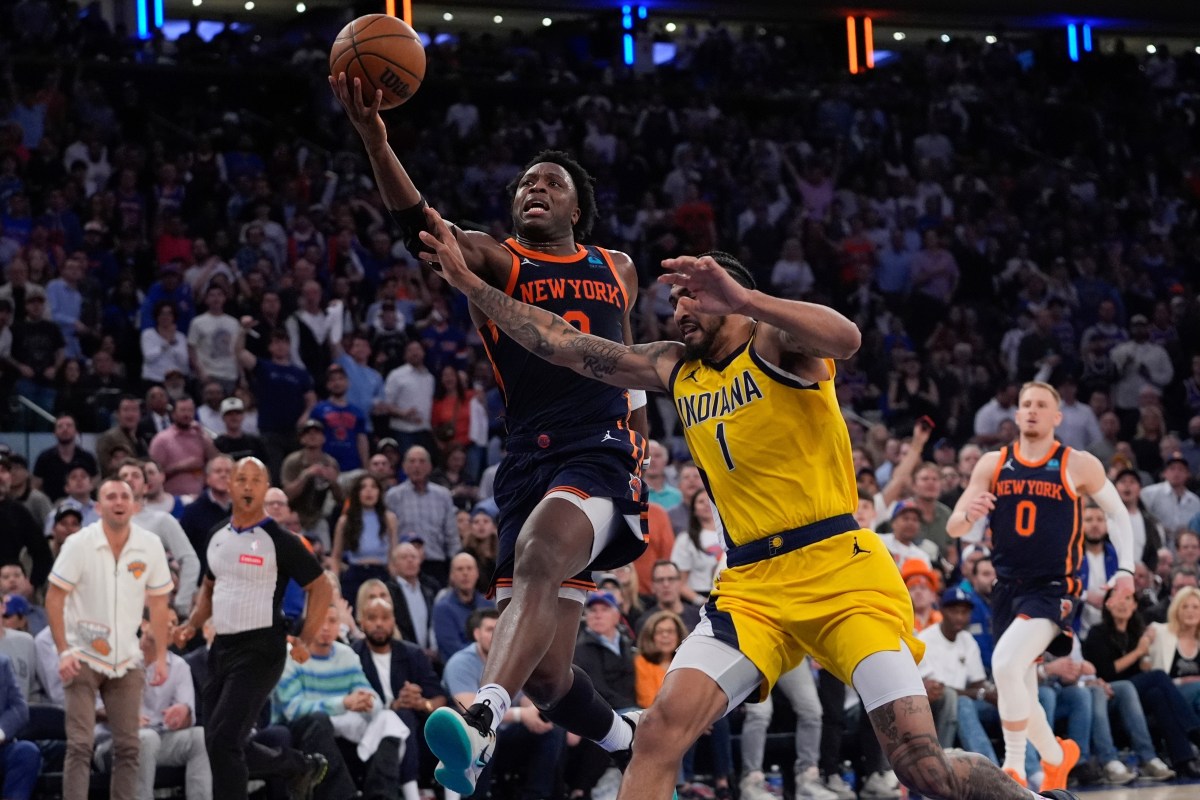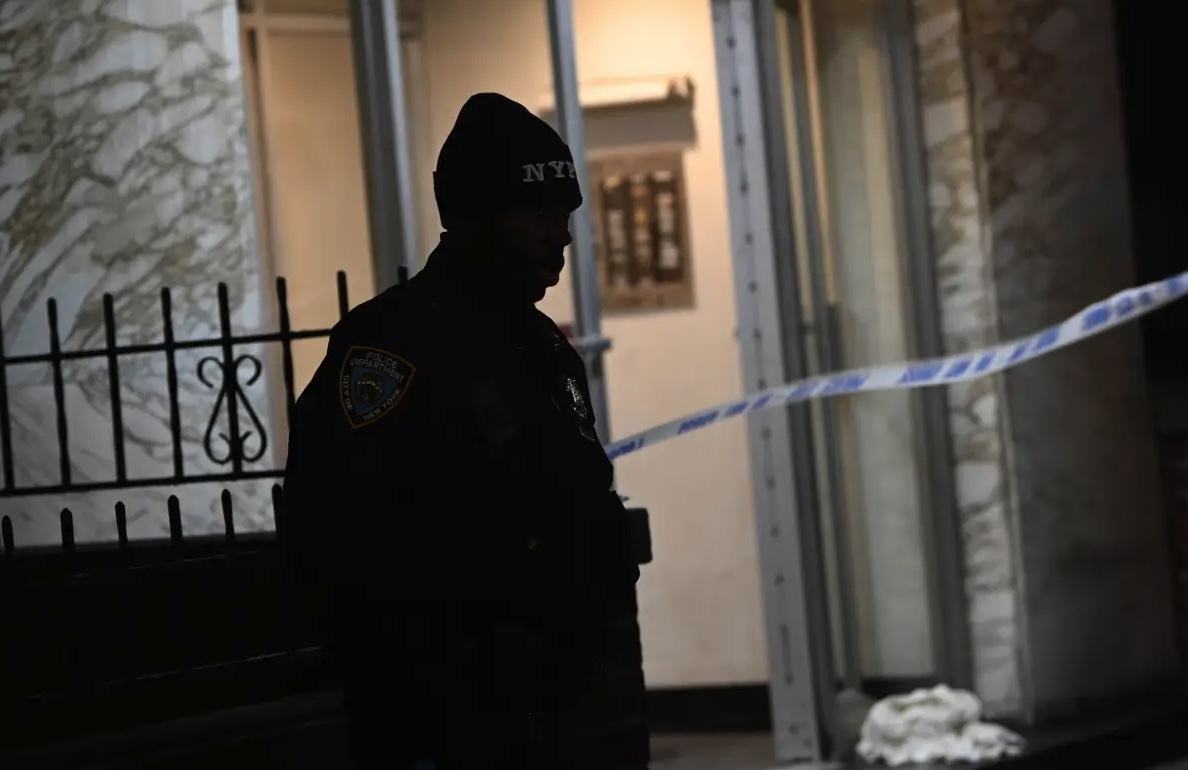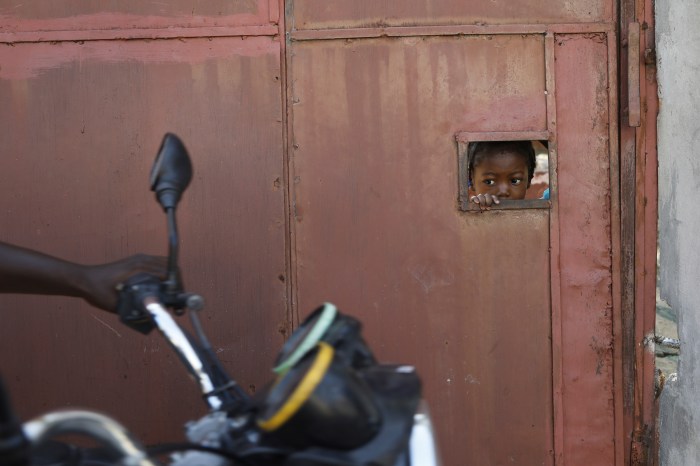In the same vein as “Sister Act” or “Newsies,” “Ghost” is a musical directly translated to stage from a hit film by the same name. Caissie Levy is the lead actress tasked with portraying the iconic role of Molly – a sexy sculptor whose broker boyfriend delays his own afterlife to spare hers – which was carved into the collective cultural consciousness by Demi Moore in 1990. We spoke to her about what it was like to follow in the movie star’s footsteps and how technology plays a huge part in bringing to life the spirit of this Broadway haunt.
Did you feel pressure trying to live up to a role originated by Demi Moore?
Our creative team never wanted us to do a re-creation of those performances onstage. Even though we’re very true to the story, it’s very different from the film … even down the costumes and the hair. They modeled the look of the character after my look – which is blond, curly hair – so right away when the audiences sit down they don’t see that iconic Demi Moore hair cut. So that’s just one example of a departure we took from the film.
Speaking of costumes, they’ve certainly kept the movie’s more sexualized elements intact. So we have to ask: Who shows more cleavage, you or co-star Richard Fleeshman?
[Laughs] That’s a great question! I feel like it would depend who you ask. Richard only has his shirt off once, but there is a giant billboard of him with his shirt off outside of the theater, so I think people linger on that image. We had some cast members from “Priscilla” come to the show last week. Afterward, they sent a message to my dresser, and they said: “You know, we have overalls in our show, too. They usually cover up the people that wear them!”
How does Molly hold up against some of the other firebrands you’ve played onstage, like Sheila in “Hair,” Elphaba in “Wicked” or Maureen in “Rent”?
Molly can be counted in that group as a strong female character, for sure. She’s feisty and independent. At the start of the play, we see her being gutsy with Sam and kind of challenging him: “Why won’t you say ‘I love you’?” She isn’t shy about her feelings – she has a strong presence and she doesn’t doubt herself very much. … Then of course when she loses Sam, and has to go through all of this pain and grief, she gets broken down quite a bit. It’s been a whole new skill set to play a character who’s basically grieving the whole show.
How is it being in a love story where you can’t see or hear your romantic partner for most of the show?
It’s pretty brutal actually. [Richard and I] really only have about 15 minutes at the top of the show together, and we’re not really interacting until the last scene. It’s a testament to the strength of the writing and the story that people love so much. In rehearsals, I remember at the very beginning that I couldn’t stop looking at him when he was delivering a line to me. But of course, I’m not supposed to know he’s there.
Do you believe in ghosts?
I definitely believe that people live on, whether that’s in your memory of them after they’ve gone or if there’s some ghostly presence that exists. I certainly wouldn’t count it out. I don’t claim to know any of those answers, but I’d like to think that you can feel someone’s presence even after they’re gone. But I’ve never been haunted – the idea of that scares me, for sure.
A big talking point is all of the technology used in the show. Do you feel like you have to push yourself harder to compete with all those projections?
They are like another character. I haven’t done a show where we’ve used this kind of technology so heavily before, so it was definitely something to navigate. With “Ghost,” it’s necessary – it’s not just cool and innovative and interesting and new – but it’s integral for the storytelling, because this is a story that requires magic and requires an otherworldly element. It’s not arbitrary, the projections and illusions and how the set moves.
You’ve had some technical mishaps – were there “Spider-Man”-like delays or injuries?
Compared to “Spider-Man,” incredibly minimal! The risk factors in the two different sets are wildly different. I wouldn’t even compare our show to “Spider-Man” – but because we’re the two most technologically advanced and most commercial shows on Broadway right now, people like to dig in on that. We’ve only had a couple of show stops in London and Manchester, and one in New York. When you’re using moving walls that are all video pixilated, if one of them doesn’t want to move then the other one is going to crash and break. Luckily, I was never fearful for myself … [but that’s] live theater, you know?




















